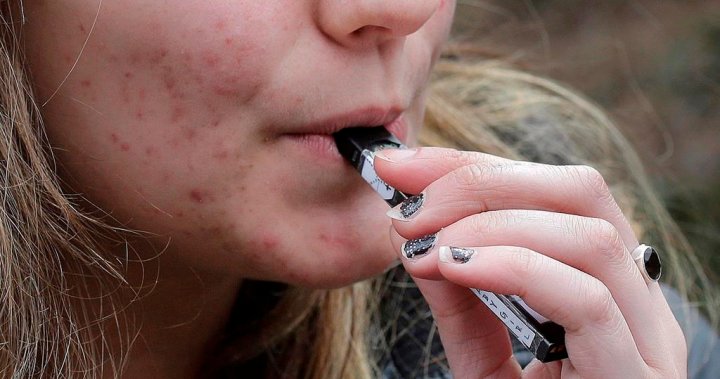
Toxic metals in vapes may pose health risks for youth, study finds
Global News
The study, published Monday in the Tobacco Control journal, says vaping may increase the risk of exposure to lead, uranium and cadmium.
E-cigarette products, or vapes, may contain toxic metals that are particularly harmful to children and teens, a new study has found.
The study, published Monday in the Tobacco Control journal, says vaping may increase the risk of exposure to lead, uranium and cadmium. Ingesting metals causes systemic harm to young people following not only long-term use, but short-term as well, it warns.
“An increased overall metal exposure burden has been linked to cognitive impairment, behavioural disturbances, respiratory complications, cancer, and cardiovascular diseases in children,” the study says.
Exposure to lead is associated with significant effects on cardiovascular and neurocognitive functions, it says, while cadmium exposure is linked with an increased risk of osteoporosis and cancer in the nasopharynx, lung, breast, pancreas, prostate and bladder.
The findings come as countries across the world continue to struggle with vaping’s popularity among young people, which has skyrocketed in the past five years.
In Canada, rates of smoking tobacco have been steadily declining since the early 2000s, but vape-use has spiked in return.
Statistics Canada data from January found approximately one in seven youth aged 15 to 19 reported vaping in the past month in 2022. One in 15 said they vaped every day.
A 2021 Canadian Tobacco and Nicotine Survey (CTNS) found 61 per cent of youth who vaped in the past 30 days said they had never tried a tobacco cigarette.

Many kids and teens are looking forward to the holidays with great excitement, but others find it a difficult time of year filled with anxiety, stress and loneliness. It’s something Alisa Simon, the chief youth officer at Kids Help Phone, says they watch for when school pauses for the winter break, noting, “we do see an increase...










